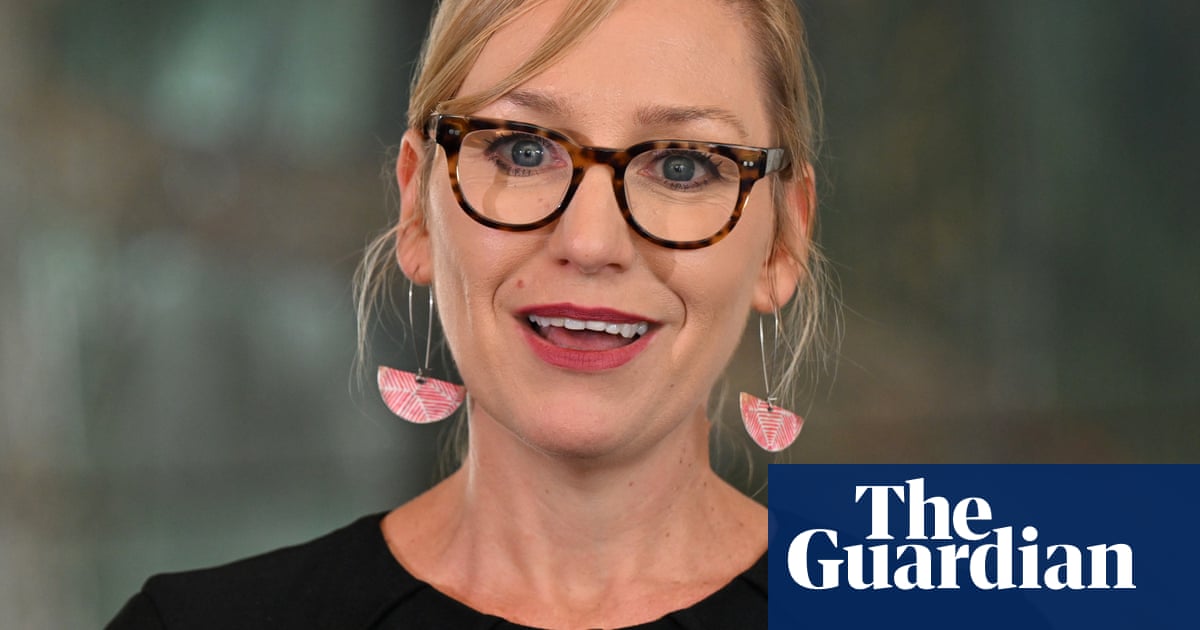Larissa Watersis known to wear her views on her ears.
From the “Stop Adani” coalmine campaign to the ongoing fight for reproductive rights, the Queensland senator has often used themed earrings to make a point.
In a party known for raucous protest, for shouting,even brandishing a fish on the floor of parliament, Waters’ subtle-yet-pointed displays of defiance offer a window into the style of politician theGreens have chosen as their new leader.
The 48-year-old is the fifth person to lead the party after Bob Brown, Christine Milne, Richard Di Natale andAdam Bandt – whose shock defeat in his own seatat the 3 May election brought on an unexpected leadership ballot.
The social activist Mehreen Faruqi and the deal-making environmentalist Sarah Hanson-Young werespoken of as contendersahead of Thursday’s party room vote in Melbourne.
In the end, the far lower-profile but far less polarising Waters was elected unopposed and unanimously by the Greens’ 12 federal parliamentarians.
Waters has been in parliament for 15 years and held the positions of co-deputy leader and leader in the upper house.
But party insiders say the single mother-of-two has never pursued power and only reluctantly agreed to run for the leadership at the urging of others.
Sign up for Guardian Australia’s breaking news email
She is smart, warm and friendly, colleagues say, the type of politician who can bring people together. Her Labor counterparts describe her as pragmatic.
As the Greens rebuild from a federal election result few saw coming, some of those qualities will be needed – and tested – more than ever.
Sowhere will Waters take the Greens?
The first signs of a new approach were written in bold in a party-issued press release announcing the new leader.
“Progressive Parliament with politics of heart – incoming Greens leaderLarissa Watersoutlines ‘firm but constructive’ approach for her leadership,” the statement led off.
The reference to “constructive” will be interpreted as signalling a softening in the hardline tactics that Bandt – and fellow vanquished Greens MP Max Chandler-Mather – adopted in negotiations with Labor, in particular on housing.
Waters was an environmental lawyer before entering politics and has more recently been the Greens’ chief advocate for women, meaning both areas may naturally be elevated under her leadership.
But to expect Waters’ Greens to radically depart from Bandt’s Greens would be to misunderstand how the party views the election result.
The public postmortem into the party’s campaign has been conducted largely by its critics – including Labor andrightwing lobby group Advance– which have cast the Greens’ loss of three lower seats as a rejection of their “extreme” positions, particularly on Gaza.
The Greens, in public and private, simply do not accept this narrative.
Sign up toBreaking News Australia
Get the most important news as it breaks
after newsletter promotion
Insiders point to the party’s national vote –which, at 12.01%, is down less than 0.2%– as proof its support is holding up.
The loss of two seats in Brisbane was not down to Chandler-Mather or his ill-advised attendance at a CFMEU rally, they say, but rather a sudden and severe collapse in the Liberal vote.
In Bandt’s case, the former leader was the victim of an unkind redrawing of the boundaries of his seat of Melbourne.
There is some truth to these assessments. There might also be some delusion.
In any case, what lessons the Greens took – or didn’t take – from the campaign will inform how they approach the next term.
The Albanese government’s thumping election win will embolden it to demand the Greens wave through its agenda or again be painted as “blockers”.
How Waters and the Greens manage the now clear expectation of progressive voters who want Labor to be pushed – but not obstructed – will define the early stages of her leadership.
The Greens are in arguably a more powerful position in parliament now that it holds the sole balance of power in the upper house when Labor wants to bypass the Coalition.
The first test will be on the environment.
Labor is eager to resurrect – albeit in a new form –plans for a federal environment protection agency, which stalled in the previous term after Anthony Albanese scuttled a near-deal with the Greens.
The Greens will be urged to accept whatever model Labor puts forward, however weak. There will be similar pressure when Labor ultimately lands on a 2035 emissions reduction target.
Waters might have vowed to do politics with a “heart” but don’t expect to her to compromise on core principles.
Dan Jervis-Bardy is a political reporter for Guardian Australia based in Canberra
